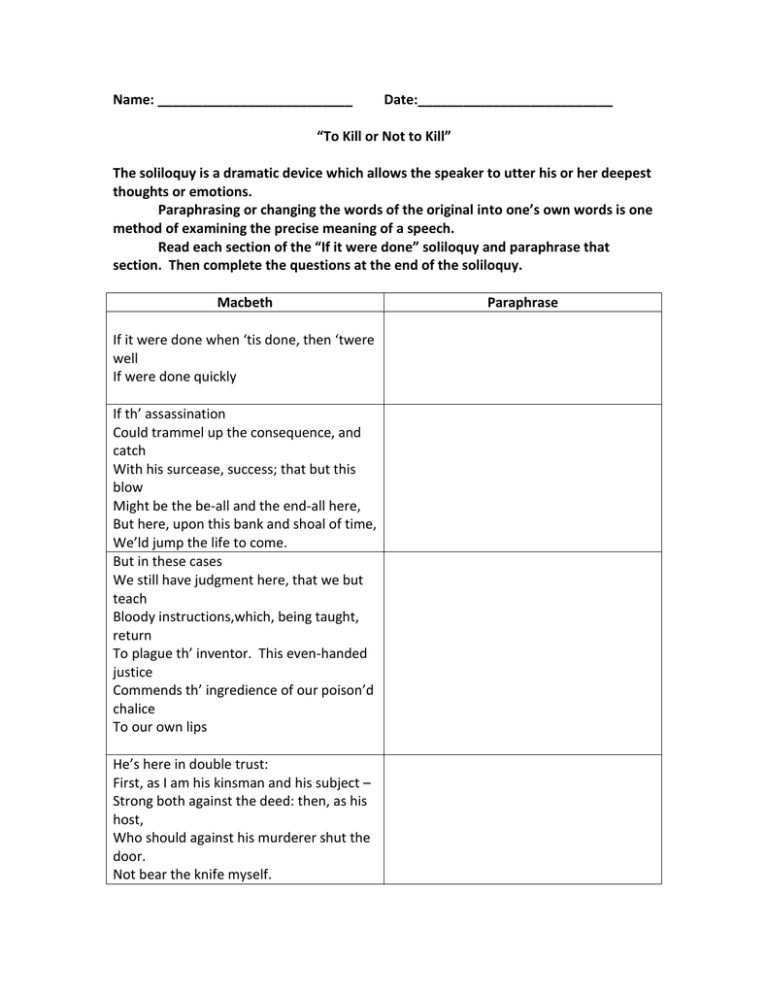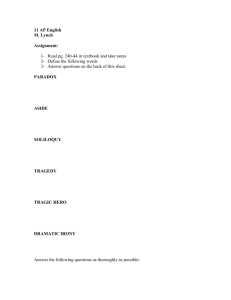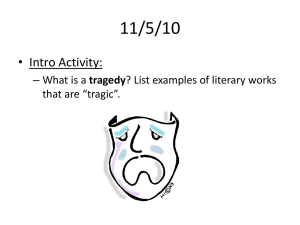Name: __________________________ Date:__________________________ “To Kill or Not to Kill”
advertisement

Name: __________________________ Date:__________________________ “To Kill or Not to Kill” The soliloquy is a dramatic device which allows the speaker to utter his or her deepest thoughts or emotions. Paraphrasing or changing the words of the original into one’s own words is one method of examining the precise meaning of a speech. Read each section of the “If it were done” soliloquy and paraphrase that section. Then complete the questions at the end of the soliloquy. Macbeth If it were done when ‘tis done, then ‘twere well If were done quickly If th’ assassination Could trammel up the consequence, and catch With his surcease, success; that but this blow Might be the be-all and the end-all here, But here, upon this bank and shoal of time, We’ld jump the life to come. But in these cases We still have judgment here, that we but teach Bloody instructions,which, being taught, return To plague th’ inventor. This even-handed justice Commends th’ ingredience of our poison’d chalice To our own lips He’s here in double trust: First, as I am his kinsman and his subject – Strong both against the deed: then, as his host, Who should against his murderer shut the door. Not bear the knife myself. Paraphrase Besides, this Duncan Hath borne his faculties so meek, hath been So clear in his great office, that his virtues Will plead like angels, trumpet-tongu’d, against The deep damnation of his taking-off; And pity, like a naked new-born babe. Striding to blast, or heaven’s cherubin, hors’d Upon the sightless couriers of the air, Shall blow the horrid deed in every eye, That tears shall drown the wind. I have no spur To prick the sides of my intent, but only Vaulting ambition, which o’erleaps itself And falls on th’ other side. 1. Does Macbeth seem to have more reasons for or against the killing of Duncan? 2. Does Macbeth seem fully aware of the consequences of the planned murder? Support your response with evidence from the soliloquy. 3. Look back to Scene 7. At the conclusion of this soliloquy, what decision does Macbeth seem to make? 4. What persuasive techniques does Lady Macbeth use to convince Macbeth to change his mind regarding the murder of King Duncan by the end of Act 1? Organize them below. Technique Insults Logos Ethos Rhetorical Question Pathos Other? Example or Proof

